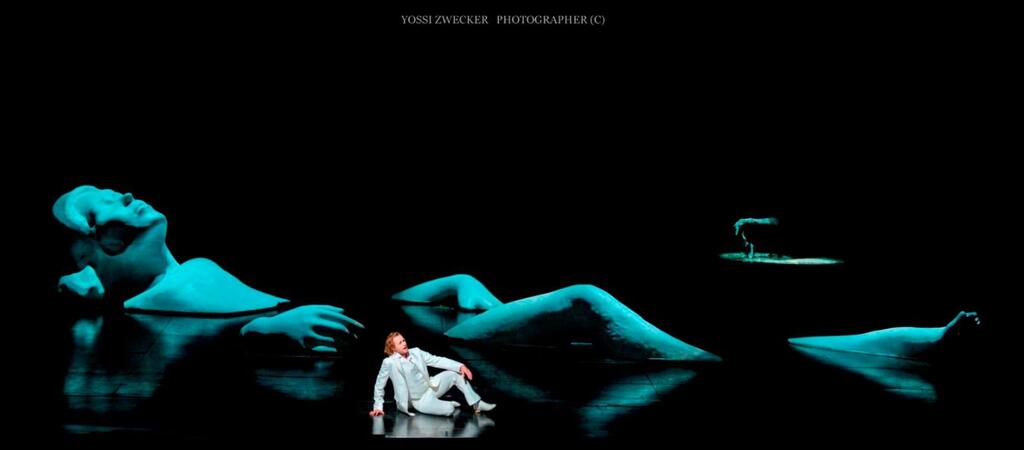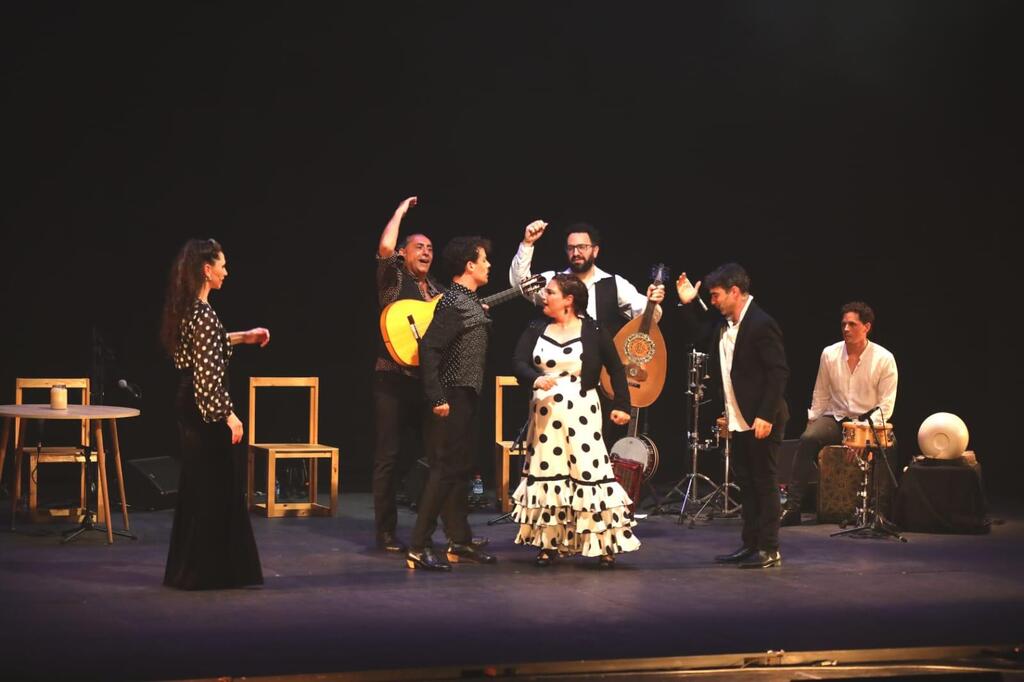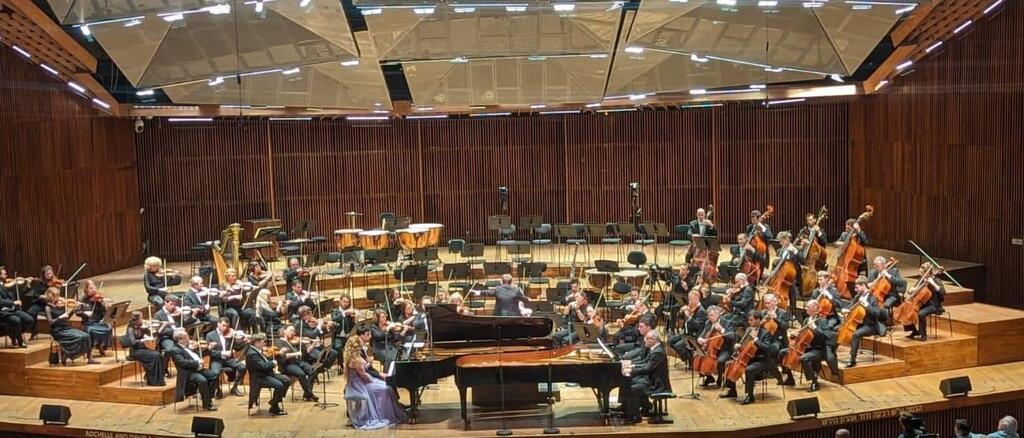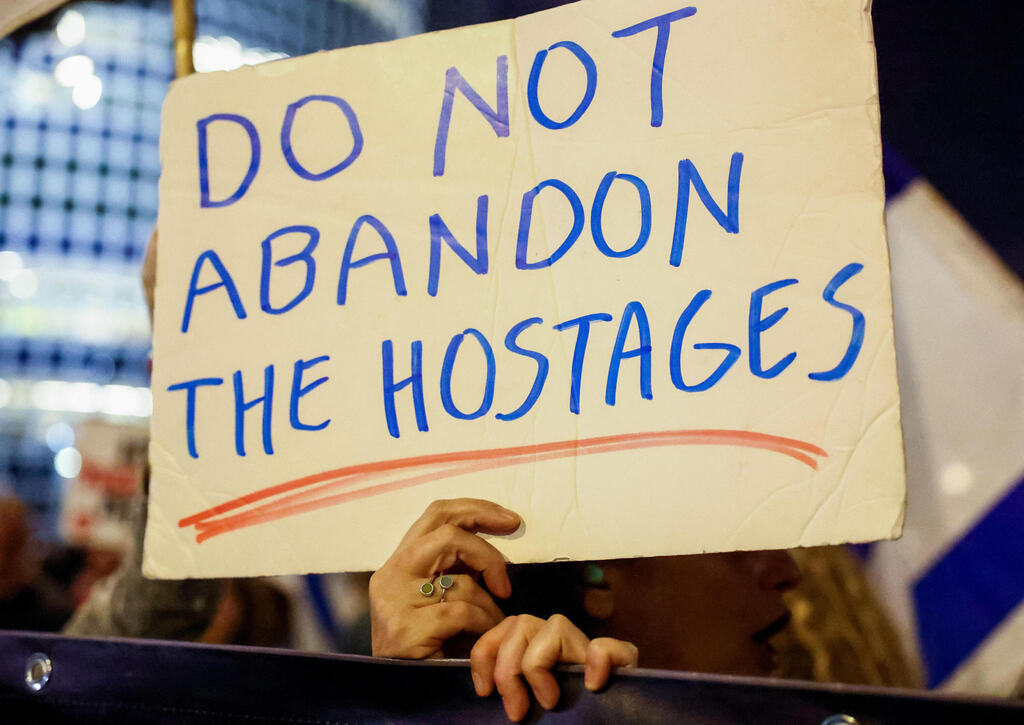Getting your Trinity Audio player ready...
Life in Israel is far from normal these days, but it would be hard to tell judging from the full slate of performances being offered by the country’s leading cultural institutions. That said, nearly every concert or show begins or ends with remarks underscoring the relevance of the performance to the current situation.
One of the most moving examples of this occurred on the evening of the April 8 premiere of the current Israeli Opera production, Orfeo ed Euridice, by 18th-century German composer Christoph Willibald Gluck. (This production is one of the few operas that were not postponed during this year’s season, truncated by the war.)
The opera is based, of course, on the tragic myth of Orpheus descending into the underworld in order to bring back to life his deceased wife Euridice; at the end of the performance, after the artists had taken their bows, director Yehezkel Lazarov expressed aloud the hope that Israel’s hostages, too, would soon re-emerge from the depths of their hell in captivity and rejoin the world of the living.
This beautiful Italian baroque opera features a great many dance sequences, and the role of Orfeo was originally scored for a castrato – a musical tradition somewhat maintained in the current production by the rare casting of a countertenor, American Nicholas Tamagna (and his alternate, Polish countertenor alternate, Jan Jakub Monowid). All other roles are being sung by Israeli artists familiar to Israeli audiences, although the guest conductor, Matteo Beltrami, has come from Italy for his Israeli Opera debut.
The staging is somewhat controversially contemporary (Euridice is fatally injured in an automobile accident and dies in a modern hospital), but the Tel Aviv premiere was greeted with thunderous applause. The current run ends on April 19, and will be followed in May-June by the opera Dialogues des Carmeilites, by Francis Poulenc.
A different cultural presentation, meanwhile, was dedicated to fallen IDF soldier Sgt. Yael Leibushor, 20, killed in battle in Nahal Oz on October 7. Leibushor was an amateur Flamenco dancer; and one of the three days of this year’s Dias de Flamenco festival at the Suzanne Dellal Centre for Dance and Theatre was a tribute to her memory.
The annual Dias de Flamenco festival, sponsored by the Adi Agmon Foundation for the Advancement of Spanish Dance and Culture in Israel, was held at the end of March and featured world-renowned artists who traveled to Israel to demonstrate – and express verbally – their solidarity with the country. In particular, the concluding performance, Amor de Sevilla, was a showcase of Flamenco virtuosity, with visiting dancer Iván Orellana Domínguez and guitarist Fyty De Triana, accompanied by Israeli musicians, dazzling the sold-out crowd.
The Israel Philharmonic Orchestra (IPO) has also been hosting artists from abroad, on practically a non-stop basis since the beginning of the year. March saw the arrival of Danish violinist and conductor Nikolaj Szeps-Znaider, who both conducted the orchestra and performed well-received violin concertos by Mozart and Kreisler.
In early April, Australian Conductor Daniel Smith arrived to take the podium alongside acclaimed Israeli violinist Vadim Guzman, who performed Beethoven’s sole violin concerto. The two shared the program with the local Multipiano Ensemble – four talented pianists who play simultaneously on two conjoined pianos, adding up to eight hands flying across the keyboards to produce memorable musical moments.
One appropriate composition performed by the piano quartet was Land of Four Languages, by Israeli composer Arieh Levanon. In the words of senior pianist Tomer Lev, the choice of the grouping of short works inspired by the musical traditions of speakers of Hebrew, Yiddish, Ladino and Arabic languages reflects the “hope for [peaceful] co-existence among peoples.”
The emphasis on violin concerti continues this month, when the IPO will welcome the chief conductor of the Prague Philharmonia, Emmanuel Villaume, together with Japanese violinist Fumiaki Miura. Miura, who is making his debut appearances in Israel in concerts in both Tel Aviv and Haifa, will perform concerti by Mozart and Tchaikovsky.
Finally, the screening schedule of the Tel Aviv Cinematheque has barely been affected at all in recent months. Even all of its originally scheduled film festivals have been proceeding as planned.
According to the presenters of March and April’s French and Italian Film Festivals, a lot of soul-searching went into the question of whether to hold the festivals or not. In the end, however, it was decided that the themes of many of the films – such as coping with loss, and resilience – held sufficient relevance to justify the contribution that art can make to society during difficult times.





